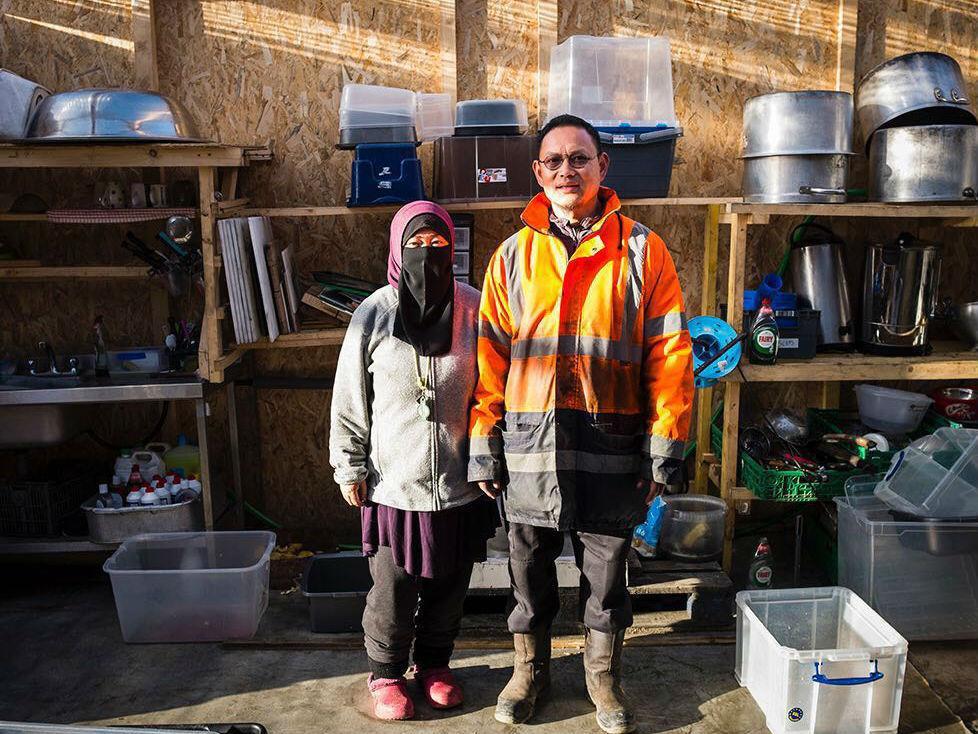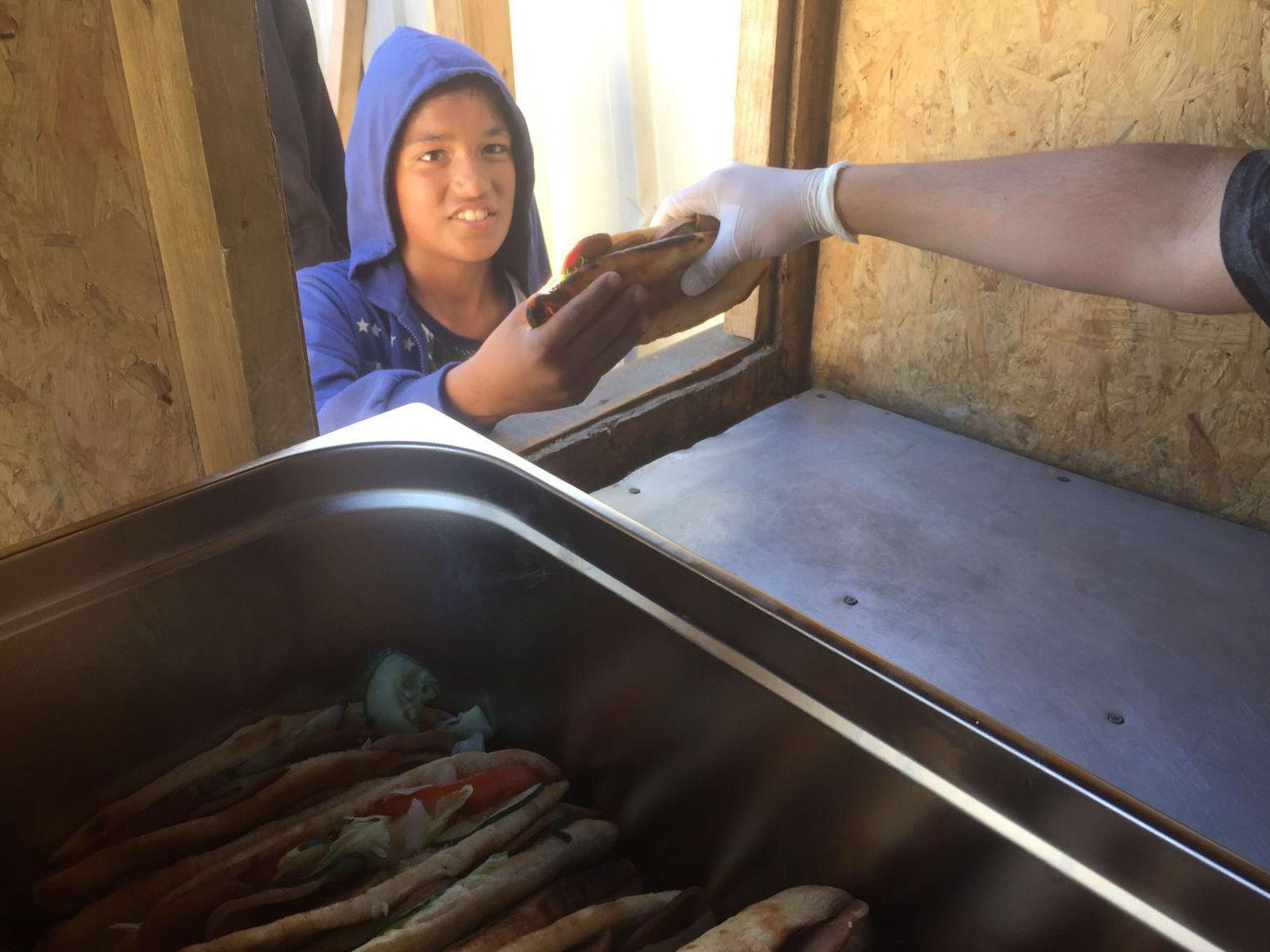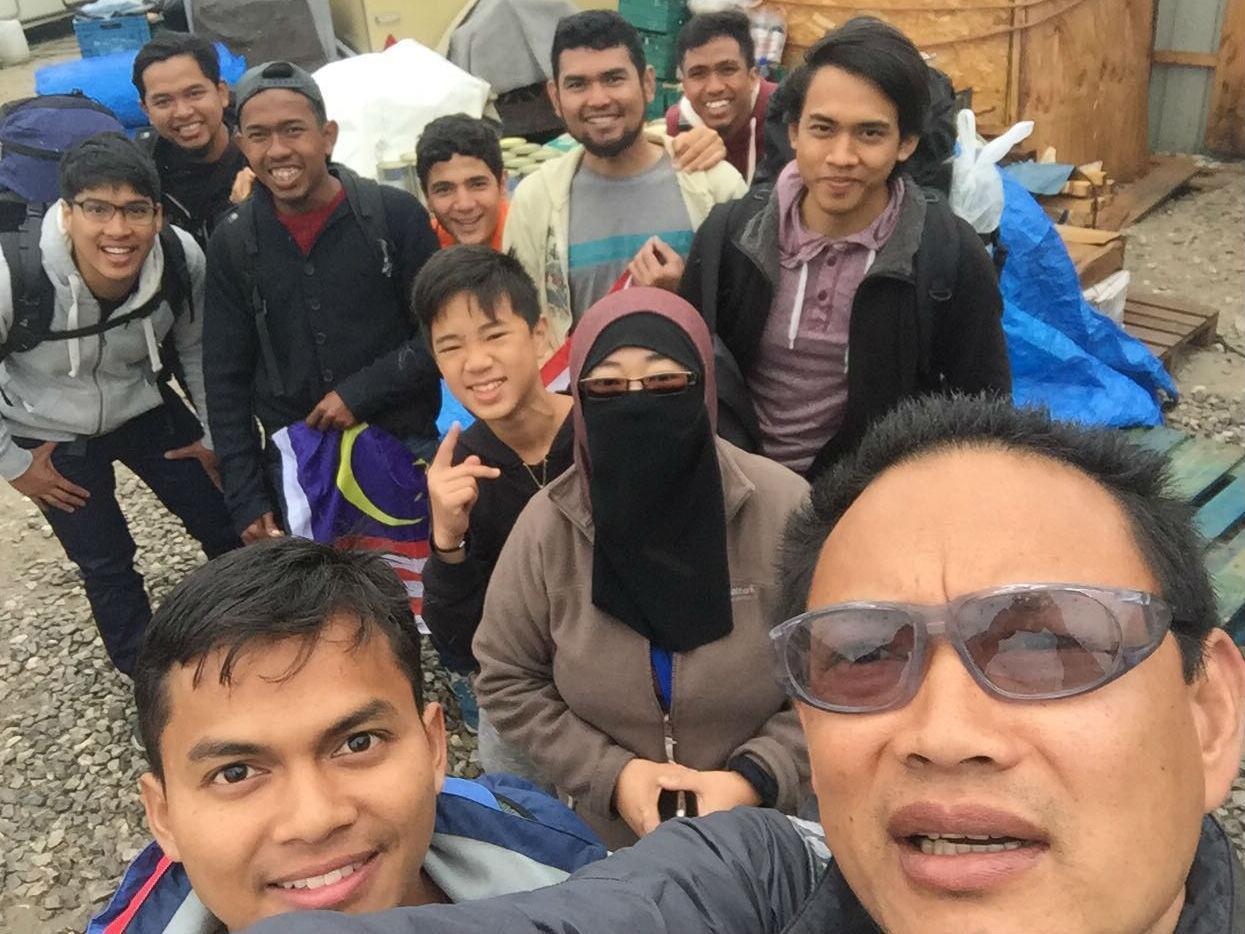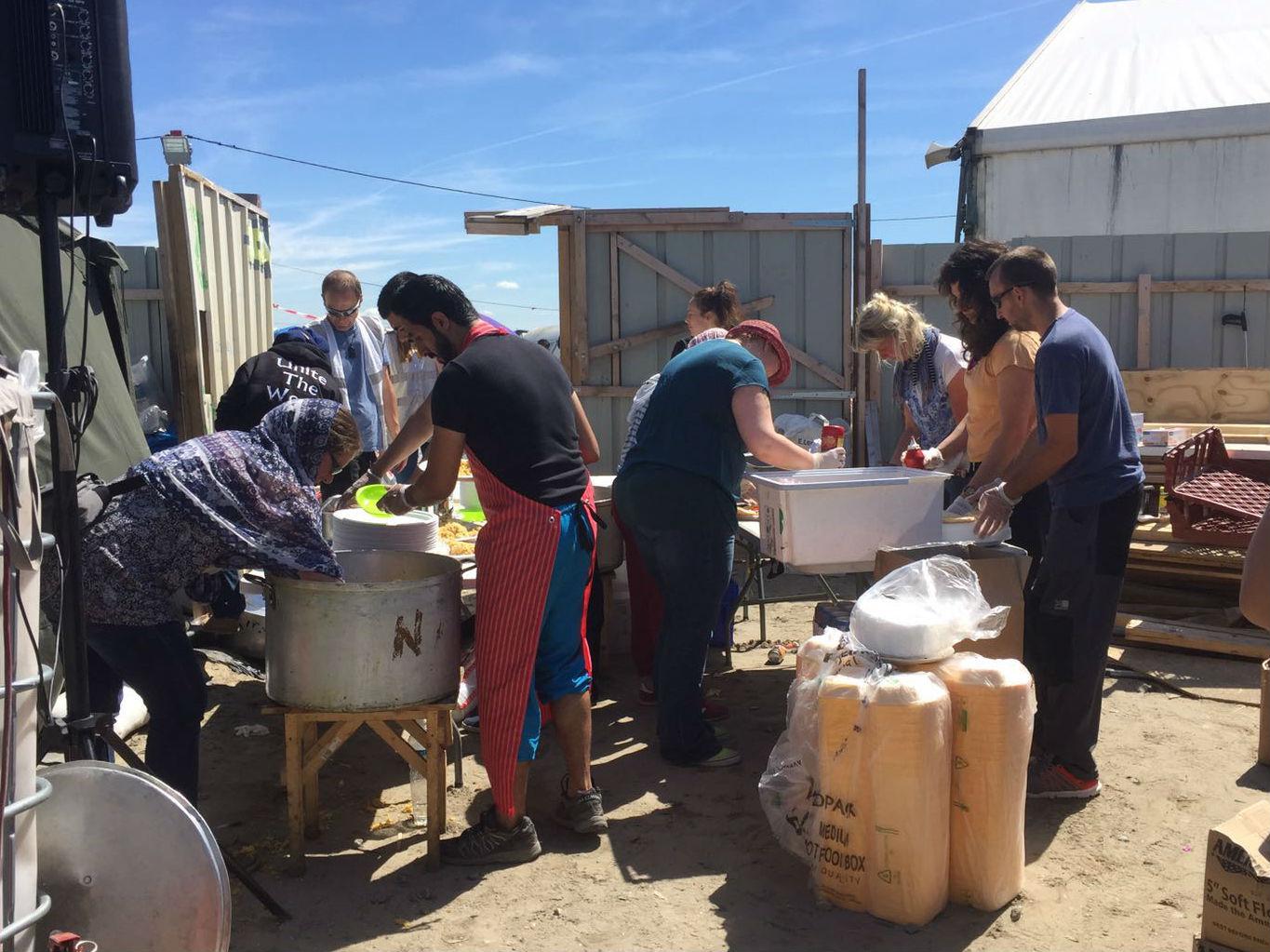This couple travelled to Calais to help refugees – and never came back
'We just couldn't go home – there are people whose kids are hungry,' says Sofinee Harun

When a couple from County Durham took their family caravan to the 'Calais Jungle' in September last year, they were planning to stay less than a week.
A year later, Jamal Ismail and Sofinee Harun are feeding free meals to 1,500 people in the camp every day. Working from sunset to sundown all-year-round, they say “we never close”.
They and the kitchen volunteers allow a maximum of 10 seconds to serve each person in a queue that extends into the distance. It means no one has to wait, getting hungry, for too long.
Now, whenever Ms Harun visits the UK, she can’t sleep. “My mind is still back in the Jungle,” she told The Independent.
“We just couldn't go home. We know that so many people have arrived [in the refugee camp]. There are women and children, there are families, there are people whose kids are hungry.
“They depend on you. To think that they're not going to have a meal if you don't cook is awful.”
Pressure on services in the Calais camp is mounting. The number of refugees is expected to exceed 10,000 in the next few weeks, according to police, while donations are waning.
In their latest census, the Calais charity Help Refugees found that almost 900 children were staying in the Jungle. Almost 80 per cent of those children are alone.
Despite aid from restaurants in the camp like the Kid's Cafe, which was recently saved from demolition, for the first time Help Refugees says it is getting reports of people going hungry.

Ms Harun and her husband, who are originally from Malaysia, were appalled by the conditions they found in the camp when they first arrived.
“Almost everybody was in summer tents,” she said, “It was raining and flooding. And when it rained they couldn’t cook because they had to cook with firewood.
“The way people live [in the camp], without electricity, without proper water... to see something like that in Europe is shocking.
“In Malaysia in the 1970s, when I was small there were maybe some remote villages like that.
“That was some 30 years back – and that wasn't a developed country.”

After what they saw on their first visit Mr Ismail, an engineer, installed gas stoves so the refugees could have hot food.
“If you go camping for a week, having a cold meal is fine,” said Ms Harun, “but when you stay for a long time it’s just depressing.
“Being a foreigner in a foreign country, I know how important food is”

The cooking in the Kitchen in Calais has a Malaysian influence, but Ms Harun said many in the camp – who come from Eritrea, Pakistan, Syria, Iran and a number of others – find it familiar.
“In Malaysia, we have a very mixed culture. We have Malay people and we have people from Indian and Chinese backgrounds, the food is always very mixed,” she said.
“Given, what these people have been through, having something familiar is good.”
The presence of the makeshift settlement in Calais has become a controversial issue in French politics, with the mayor of Calais repeatedly threatening to demolish the camp.
Presidential hopeful Nicolas Sarkozy has said the so-called Le Touquet agreement, which allows the establishment of British border controls on the French side of channel, should be revisited.
“The Jungle should not be in Calais or anywhere else, because this is a republic and those with no rights to be here should return to their country,” he said.
Join our commenting forum
Join thought-provoking conversations, follow other Independent readers and see their replies
Comments
Bookmark popover
Removed from bookmarks